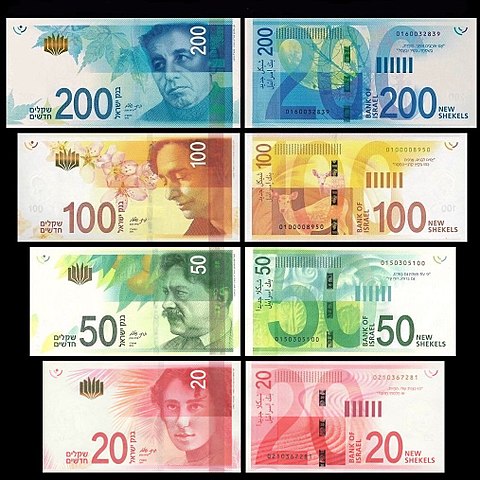Understanding the Israeli Shekel (ILS) exchange rate involves considering various economic, political, and global factors. Here’s a comprehensive guide to help you understand the Israeli Shekel exchange rate:
1. Economic Indicators:
- Inflation Rates: Changes in inflation rates can impact the shekel’s value. The Bank of Israel sets an inflation target and adjusts monetary policy to maintain price stability.
- Interest Rates: The Bank of Israel’s interest rate decisions influence the shekel. Higher interest rates may attract foreign capital, strengthening the shekel.

2. External Trade and Current Account:
- Trade Balances: Israel’s trade balances, particularly exports and imports, influence the shekel. Trade surpluses can strengthen the currency, while deficits may lead to depreciation.
- Current Account: The overall current account balance, including trade, services, and transfers, affects the shekel’s value.
3. Political Stability:
- Political stability is crucial. Periods of political uncertainty can lead to a lack of confidence among investors, potentially impacting the shekel.
4. Global Economic Conditions:
- Global economic trends and conditions impact the shekel. Economic crises or slowdowns globally can influence investor sentiment and capital flows.
5. Foreign Direct Investment (FDI):
- FDI inflows contribute to the demand for the shekel. Policies promoting a favorable investment climate can attract foreign investors.
6. Monetary Policy:
- Decisions by the Bank of Israel regarding interest rates and monetary policy influence the shekel’s value.
7. Government Debt Levels:
- High levels of government debt can raise concerns about fiscal sustainability and impact the shekel.
8. Technological Innovation and Industry:
- Israel’s reputation for technological innovation and a strong industrial base can attract foreign investment, positively affecting the shekel.
9. Exchange Rate Regime:
- Israel operates a managed float system. While the shekel is allowed to fluctuate, the central bank may intervene to stabilize or influence the exchange rate.
10. Geopolitical Factors:
- Israel’s geopolitical situation can impact investor confidence and influence the shekel’s value.
11. Natural Resource Prices:
- Israel’s dependence on natural resource imports makes the shekel sensitive to changes in commodity prices.
12. Speculation and Market Sentiment:
- Traders’ perceptions and market sentiment can cause short-term fluctuations. News, economic data releases, and geopolitical events can influence speculation.
13. Global Risk Environment:
- The shekel may be considered a risk-sensitive currency. During periods of global risk aversion, investors may shift towards safer assets, potentially impacting the shekel.
14. Currency Interventions:
- The Bank of Israel may engage in currency interventions to stabilize the shekel or achieve specific economic objectives.
15. Regional Relations:
- Diplomatic and economic relations with neighboring countries and regional stability can impact the shekel.
16. International Trade Agreements:
- Agreements that impact Israel’s international trade can have repercussions on the shekel.
17. Economic Reforms:
- Government initiatives and economic reforms can impact investor confidence and the shekel’s strength.
18. COVID-19 and Global Events:
- The COVID-19 pandemic and other global events can have widespread economic effects, influencing the shekel.
Understanding the Israeli Shekel exchange rate is a dynamic process that involves monitoring a wide range of economic indicators, geopolitical developments, and global trends. It’s important to stay informed about both domestic and international factors that can impact the shekel’s value. Additionally, exchange rates can be subject to sudden changes, and periodic updates from reliable sources are recommended for the most current information.












